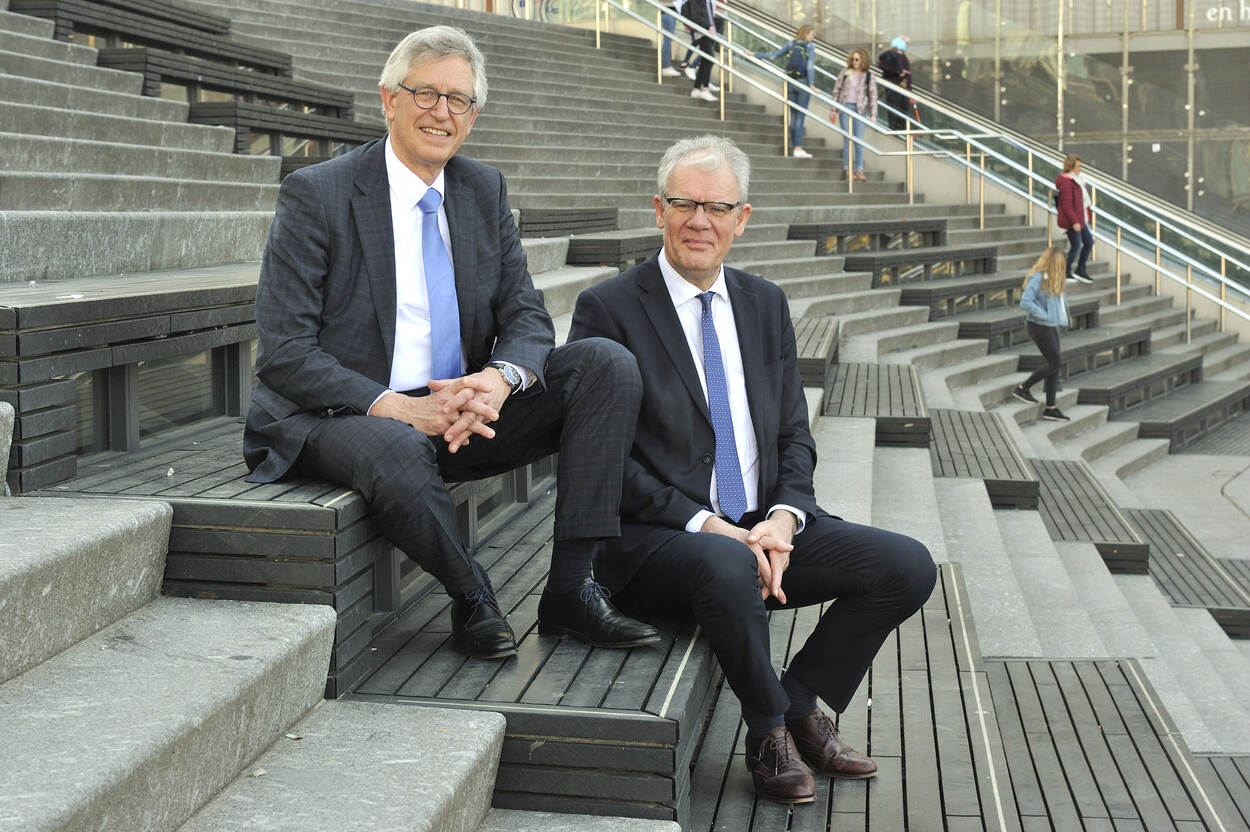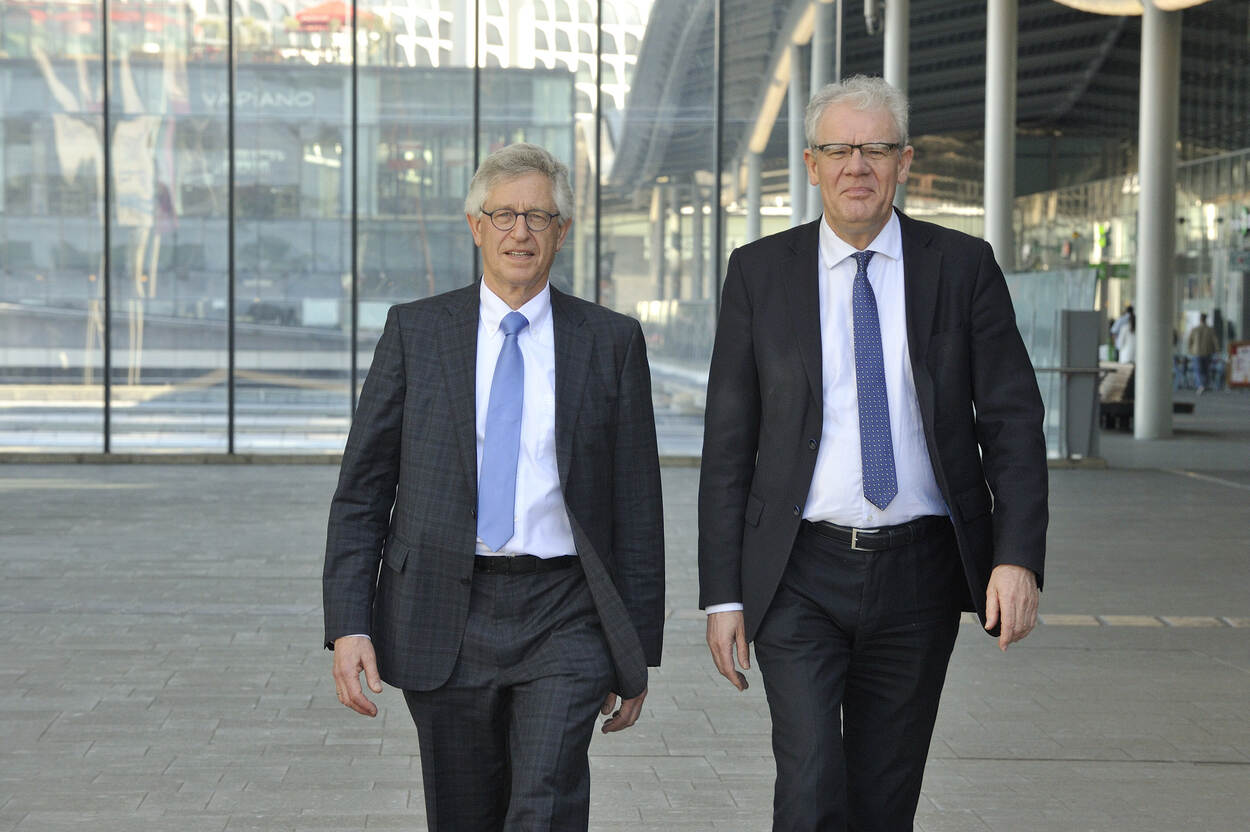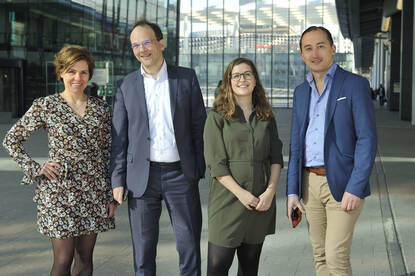'At the MEB life is never boring'. We sometimes jokingly say this as an initial reaction to a question about how things are going at the MEB, and it could certainly be applied to 2018.
The difference between expectations before the start of the year and what actually happened was huge. The MEB grew considerably, both in terms of the quantity of work and turnover and number of staff. Despite that, it turned out to be essential to make some significant adjustments halfway through the year because an imbalance became apparent in the development of income and expenditure. A whole host of factors played a role in this. One of those was, without doubt, the impending Brexit.
This development forced the MEB to look critically at all its activities, to focus more on its core tasks and to reduce the number of staff. This did not detract from the fact that, over 2018 as a whole, the MEB experienced an increase in the amount of direct assessment work. The statistics included in this annual report show that the MEB has taken responsibility for more procedures than in previous years. We assessed more centralised and decentralised applications for medicines and we acted as pharmacovigilance rapporteur more often than in 2017. In comparison with other European countries, the MEB is in the leading group, together with the Swedish agency. At national level the MEB made more scientific recommendations and processed more parallel import applications. Our organisation made an important contribution at European level in the veterinary field as well.
The European network as a whole became more balanced in 2018 and that was a specific wish of the MEB. If we look, for example, at the number of European Scientific Recommendations made, we see that more countries are participating on more of an equal footing, while the relative share of the MEB has stayed the same. In addition, more countries are involved in centralised assessment procedures than used to be the case and the work is being distributed more proportionally.
In 2018, as in previous years, the MEB increasingly became involved in projects and developments in the policy fields of the Ministries of Health, Welfare and Sport (VWS) and Agriculture, Nature and Food Quality (LNV). The MEB was facilitated in this respect by those ministries. We report on this and other developments in this 2018 MEB annual report. The report has a different structure to that of previous years. We focus primarily on the key figures and place and interpret the Dutch figures in a European context.
In this foreword and in the section entitled The year in overview we are keen to reflect on a number of issues which demanded our attention most in 2018.
The MEB in Europe
The dominant theme of 2018 was Brexit due, of course, to the relocation of the European Medicines Agency (EMA) to the Netherlands, as well as the uncertainty which the approaching Brexit implies. The MEB worked to prepare itself, but also the European network, as well as possible. For example, at the end of 2018, the MEB was commissioned by the Ministry of VWS to draw up a list of so-called critical medicines which could become scarce as a consequence of Brexit.
The International Collaboration Program (ICP) has also started to gather pace. Spreading knowledge and experience to medicines authorities in other countries is enabling them to make a greater contribution to European assessment work. The MEB has now signed partnership agreements with agencies and governments in 10 European countries.
New European regulation for veterinary medicines
Another focus of 2018 was the enactment of a new European regulation for veterinary medicines. The MEB provided support in this respect to the Ministry of LNV. The new regulation, which will take effect after a 3-year implementation phase, is groundbreaking in a number of ways. The clear focus on reducing the administrative burden, creating space for innovation and improving the availability of medicines in all member states of the EU is possibly paving the way for future changes to European regulations for human medicines.

Medicines used better
The MEB believes that accessible and comprehensible information on medicines is an essential condition for promoting their correct use. In 2018 the MEB took significant steps towards improving information on medicines with the Better Use Programme ('Goed Gebruik'). With the support of the Ministry of VWS, we have, for example, entered into a partnership with Stichting Kijksluiter. The Kijksluiter videos are a very accessible supplement to the paper package leaflet. We also worked on a toolkit for pharmaceutical companies, which contains recommendations and resources which can be used to create easily readable Dutch package leaflets. This is going to be presented in 2019.
The Minister for Medical Care, Bruno Bruins, launched the Patient Information Network. As the coordinator of this network the MEB is collaborating with 6 parties, including GPs, pharmacists and patients, on improving the accessibility of reliable and understandable information on medicines on the Internet.
Medicine shortages
Medicine shortages also received a lot of attention from the MEB in 2018. The Medicine shortages and defects notification centre is in its second year and figures show that companies are reporting temporary delivery problems more frequently. The MEB processed a little under 1,400 notifications and worked hard, together with the Health Care and Youth Inspectorate (IGJ), to resolve medicine shortages.
Finances and staff
The MEB concluded 2018 with a financial deficit. To keep that deficit manageable an organisation-wide review of activities was carried out. Some of the consequences of that can still be felt in 2019. It is thanks to considerable efforts on the part of MEB employees that we have been able to increase the organisation's flexibility, despite changes in staffing levels.
Conclusion
In 2018 the MEB had to overcome significant difficulties, but nevertheless performed superbly and also took up new challenges. Things are looking good and we consider ourselves lucky that we can combine our renewed focus on the core tasks with continuing attention for the link with the practicalities of medicine usage.
Ton de Boer, Chair
Hugo Hurts, Secretary/Director




